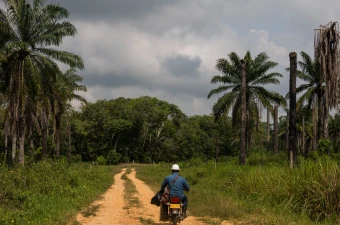The murder of a union leader emphasizes the risks for unions
The trade unions movement in Guatemala mourns the murder of Francisco Pop Ico, who worked relentlessly for labour rights for people that work in a region where palm oil plantations are proliferating. Human rights activists like Pop Ico regularly face intimidation and violence because of their commitment to fair working conditions.
Earlier this year, the creation of the first palm oil plantation in Guatemala was celebrated. This was an important step for workers’ rights. It showed union leaders and members that their fights for these rights are not in vain. However, Pop Ico's murder highlights the great risks that activists are still facing.
Trade union freedom
While it is not difficult to unionize in the Netherlands, this is unfortunately not the case in many other countries. The right for workers to organize in unions is a fundamental labor and human right. Trade unions represent workers, for example, during negotiations with employers.
There is a worldwide decline in democratic rights, which is also reflected in trade union freedom. In eight out of ten countries worldwide, workers do not have the right to be represented by a union. For example, the government refuses to engage with unions and they are excluded from consultations with employers and governments.
Trade unions in Guatemala
Guatemala is one of the poorest countries in Latin America. Most of the working people do not have a contract and, partly because of this, also no access to social security.
Guatemala has been a democracy for 25 years now, and the freedom to organize has been recognized. However, being a member of a trade union movement has proven to be almost impossible in practice.
Trade union members are often fired or intimidated in the workplace. As a result, only 0.2 percent of the workers dare to join a union.
Learn more about labour rights in Guatemala?
Check out our Palm Oil Rights Observatory >>

Publication date 19 11 2024


